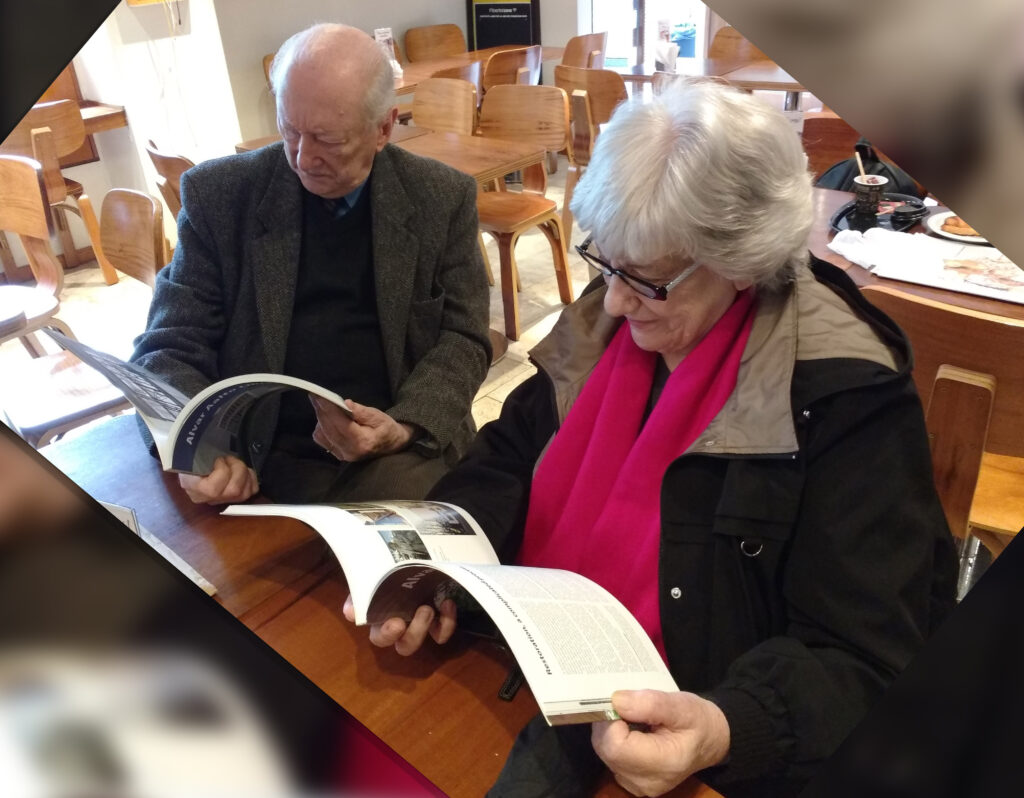In Memoriam: Mabel Scarone (1931-2024)

Very sad news hit the DOCOMOMO family in general and the DOCOMOMO Argentina working party in particular. Our beloved Mabel Scarone passed away in Buenos Aires at the age of 93. She was an architect, professor, researcher, specialist in preservation and a dedicated DOCOMOMO frontrunner right from the start.
Mabel graduated in 1955 at the University of Buenos Aires (UBA) and started her carrier in the studio of Amancio Williams and Delfina Gálvez. At the Institute of American Art of the UBA she did research work with advice of Oscar Niemeyer, Walter Gropius and Louis Kahn. This resulted in an important publication dedicated to Antonio Vilar (1970). Together with her lifelong partner Jorge Gazaneo they published: Eduardo Catalano (1956), Luicio Costa (1959), Three Rural Settlement (1965), Architecture of the Industrial Revolution (1966) as well as the Industrial Revolution and Urban Equipment (1967).
Simultaneously she began her teaching carrier at the UBA in 1954. Since 1974 she chaired the Theory and History courses at the Faculty of Architecture, for a considerable time being the only female architect in charge of a design atelier. From 1985 until her retirement, she was a fulltime professor at the Architectural Design Atelier. Together with Jorge Gazaneo she founded the Center for Conservation of Urban-Rural Heritage (CECPUR) at the UBA, directed at postgraduate research and teaching. Two years later Mabel created the pioneering degree course “An introduction to Conservation and Rehabilitation”. In the same period she developed her teaching at the Faculty of Architecture of the National University of La Plata.
In the architectural profession she will be remembered among others for the Cardinal Newman School in San Isidro. She is also the author of numerous environmental and heritage improvement plans, for example for Gaiman (Chubut), San Isidro (Buenos Aires) and El Morro (San Luis).
Mabel was a founding member of the ICOMOS Argentina Committee, the coordinator of Youth and Heritage of Unesco and together with Jorge Gazaneo the founder and longtime inspirator of the DOCOMOMO Argentina working party.
At the social level there are at least three characteristics that make this empathetic woman impossible to forget. The first was her immense dedication to her beloved Jorge and her love for their two sons and four grandchildren. One of her old students and former assistant- Stella Maris Casal- told me, that whenever they had classes and Jorge and Mabel were both teaching in different courses, the mid-morning coffee break was a meeting moment. Every time Mabel knew Jorge was to enter the bar, she put on her lipstick and checked in her mirror if her hair was all right. This she did until the last day they taught.
Her second characteristic was her strong sense of independence. As a student at the faculty of architecture she was almost the only woman and in the first two decades of her teaching period she was the only one chairing a design course. Yet she never claimed any privileges being a woman, she protected her position, showed her professional strength and hence was respected by her colleagues. One never heard her complain that in the given masculine environment she did not get sufficient opportunities. She just took them.
And finally Mabel was adored by her students, because of the way she stimulated them to discover the beauty and the talents in themselves. She let them discover the meaning of architecture, what research involves and what teaching implies. She was a master in showing her students their failures by first discussing the good parts of their work, always using kind words and a smile.
Dear Mabel thank you so much for what you meant for both DOCOMOMO Argentina and for DOCOMOMO international. It was a great honor and a pleasure to have been your friend. And if your wish will be accomplished to be re-united with Jorge forever, please give him our love and tell him that we miss you dearly.
Hubert-Jan Henket, Honorary President DOCOMOMO international.

